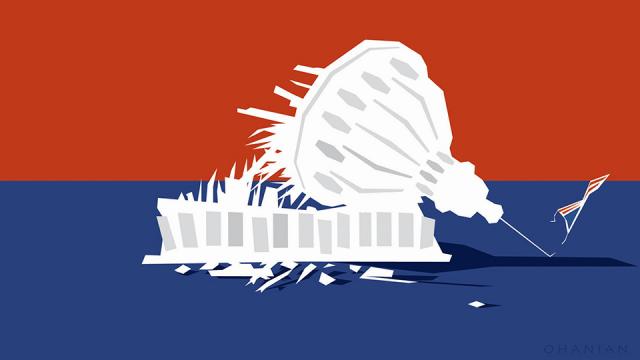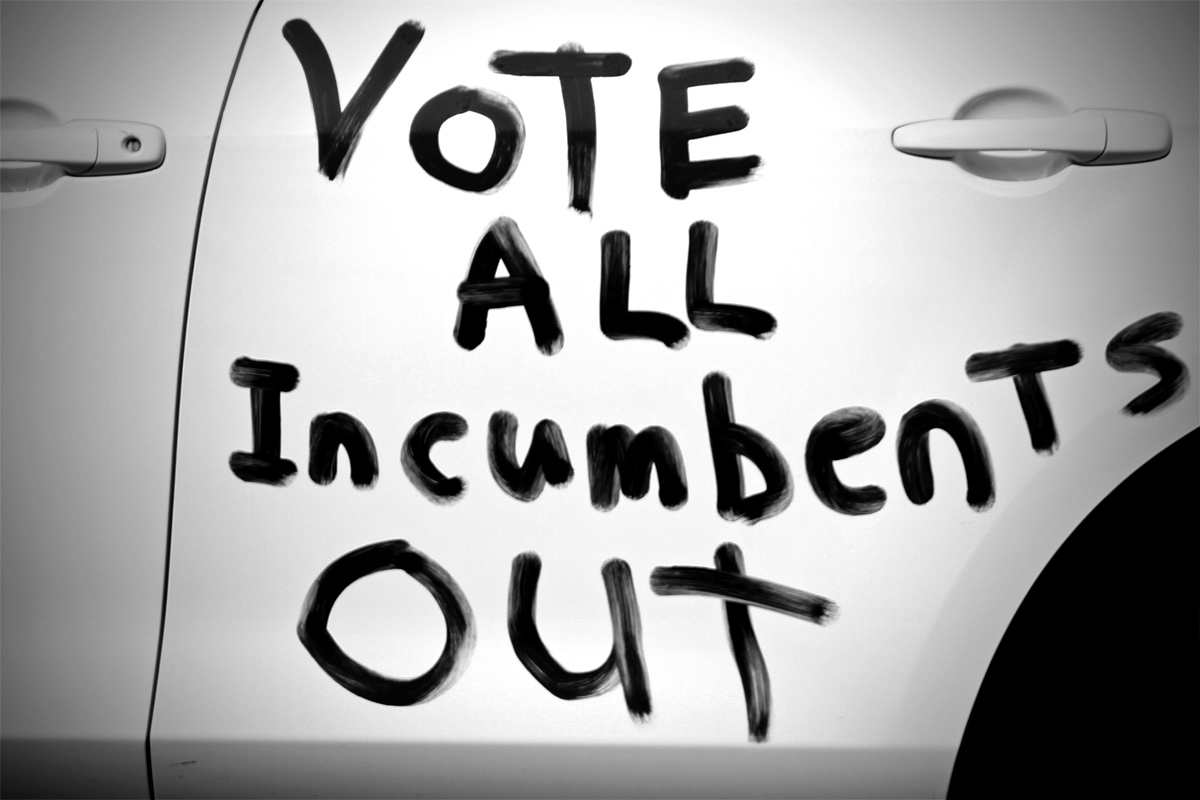
If you can’t overthrow the government overnight — a tall order under any circumstances — you might try to unseat a Congressman burdened with an atrocious voting record on issues relating to women, veterans and children. In a new, easy-to-read e-book, Carl Gibson — an Occupy organizer, journalist and activist — shows how to take a popular, albeit corrupt politician, turn him into a transparent enemy of the people and drive him from public office.
It’s hard work that demands organization and dedication, Gibson shows, but it can also be fun and rewarding, too, especially on Election Day when votes are counted and the unsavory rascal goes down to defeat. Score one for the 99%. Zero for the 1%.
Step-by-step, Gibson describes the 2012 campaign to oust New Hampshire ‘s Frank Guinta, a hack Republican politician who never met a bribe he didn’t like and who played the part of the demagogue who promised to help his constituents and rarely if every came through.
Gibson takes the lessons from that New Hampshire campaign and argues that they can be effectively applied to Congressional campaigns in other states around the country. Governors' races are more complex, he argues, because they take in an entire state. So stick with a race for Congress because it comes with a specific geographical area that can be bombarded with messages, organized thoroughly on a grassroots level and closely monitored.
Gibson favors old school and new school approaches. He believes in knocking on doors and talking to voters face-to-face as well as the efficacy of phone calls. By all means, make big signs and post them in strategic locations. Then, too, write letters to the editors of newspapers.
At the same time, Gibson recognizes and insists on using social media, from Twitter and Tumblr to Facebook. Flood the blogosphere; email like crazy. Understand the strengths of the latest technologies and make them work double time and triple time.

Gibson also argues that the campaign to unseat the unsavory politician be conducted ethically and without mudslinging – and also, as he puts it, “by any means necessary.” He doesn’t mean by violence, intimidation or ugly smears. He does mean that grassroots campaigners have to use every lawful weapon and tool at their disposal.
He also wants activists to remember that they’re fighting politicians who don’t deserve to be in public office, but will use every means to stay in power. Fight fire with fire, but don’t get burned.
Gibson’s book reminds me of some of the strategies used by Abbie Hoffman and the Yippies in the 1960s and 1970s, though he doesn’t use Yippie phrases such “street theater” and “guerrilla theater." Like Hoffman and the Yippies, however, Gibson recognizes the importance of spectacle: costumes, props, eye-catching skits and performances.
At times, his book also reminded me of Malcolm Gladwell’s The Tipping Point. Like Gladwell, Gibson knows that small actions can add up to something larger than the sum of their individual parts. Like Gladwell, he appreciates the importance of a short, succinct message that sticks, and like Gladwell he emphasizes the importance of context.
To win a campaign, Gibson writes, one must know the voters and the voting district, their personalities and identities, ideas and values. In a way, the creative organizers that he has in mind have to be sociologists and psychologists, political scientists and storytellers. Staying on message is essential. Controlling the narrative is all-important.
You may well have heard some or all of Gibson’s strategies before. Still, it’s helpful to have them all in one handy place, neatly arranged and easy to digest. In fact, I’d suggest that every organizer keep a copy of this new, indispensible book in a back pocket or backpack. It’s worth having close at hand.
Perhaps what I care most about this little book is that Gibson cares about people – both the voters and the organizers. He cares, too, about the democratic process and about American democracy itself that takes work and doesn’t happen automatically. If Thomas Jefferson noted that the tree of liberty ought to be watered with the blood of tyrants, we might say today, in the Age of Obama, that American democracy will only survive if corrupt, callous politicians are driven from office by and through the will of the people.
Unseating unsavory congressmen is yet another way to water the tree of liberty. Gibson’s strategy is more important today than ever before given recent Supreme Court rulings about money in politics, and attempts by Republicans to disenfranchise voters. Three cheers for Carl Gibson – and three cheers for Democracy.
"How to Oust a Congressman" grew out of this series that investigative reporter and contributing editor Carl Gibson wrote for Occupy.com, viewable in Part I, Part II, and Part III.
3 WAYS TO SHOW YOUR SUPPORT
- Log in to post comments
















